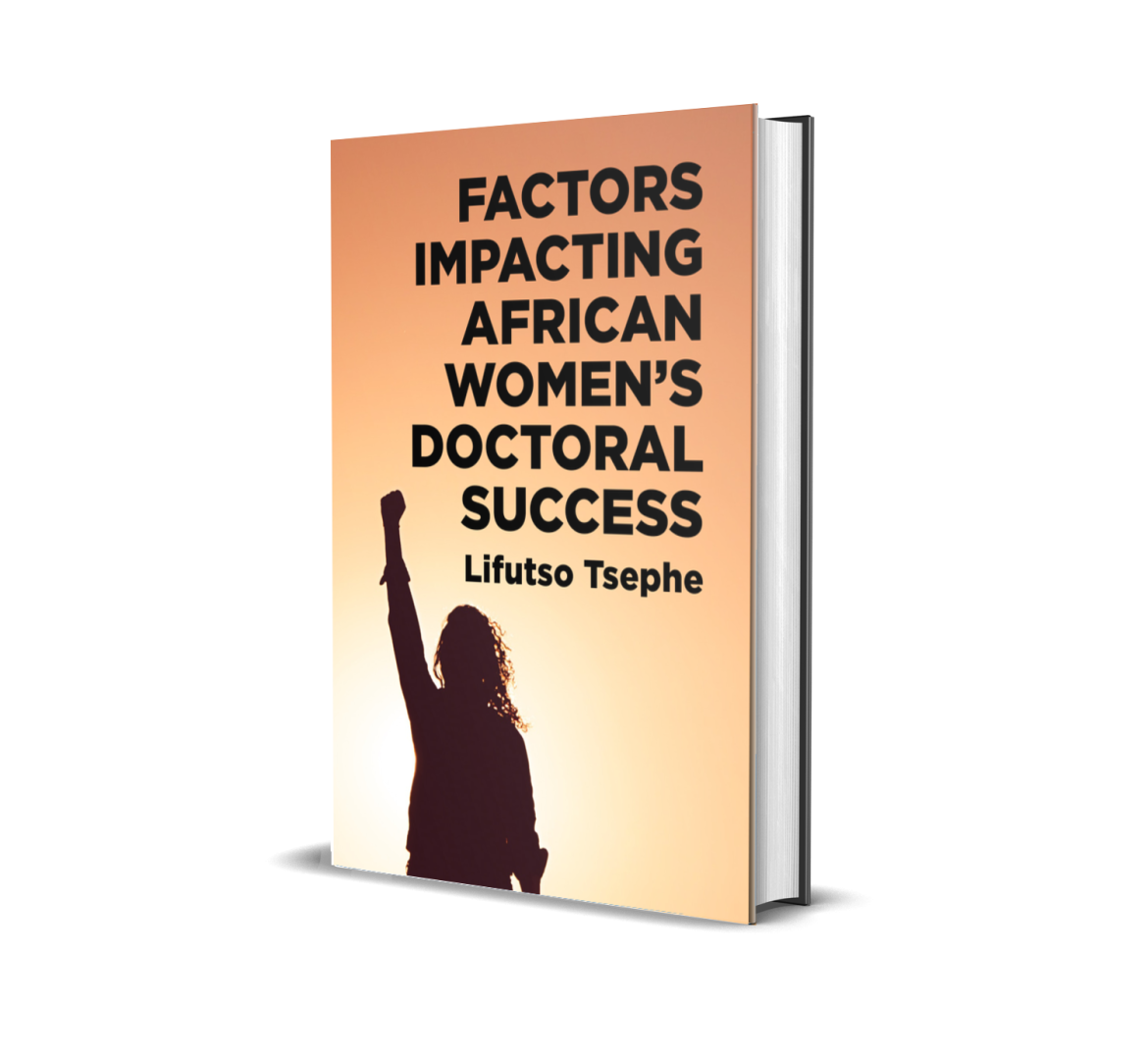Factors impacting African women’s doctoral success is an open-access book published by AOSIS Scholarly Books.
With the knowledge economy playing such a critical role in global economic development, increasing the number of Doctor of Philosophy degree (PhD) graduates in higher education institutions worldwide has been imperative. The knowledge economy emphasises the importance of critical thinkers and researchers, as ‘doctoral education cultivates thinkers and researchers’ and equips them to participate in development. African-identifying females account for 30% of doctoral graduates in sub-Saharan African countries, even when PhD education is viewed as an entry into academia and a gateway to careers in research and other disciplines. There is a paucity of research regarding PhD graduates who are specifically women in Africa; as a result, there is little information about their attributes to success in PhD studies, what opportunities and freedoms they have, and what challenges they face during their PhD journey, along with their motivation to overcome these challenges so that they can achieve their goals. It is essential for women in Africa to complete their PhD education to contribute to the development of their countries as some scholars believe no nation can grow without women’s participation. Thus, modern civilisation is the result of males and females cooperating in modern society. Even though some women complete their PhD studies, there is scant research on what strategies enabled their success. Instead, the reasons for their attrition are known. This book aims to contribute to PhD education scholarship, specifically for women in Africa. It allows women in Africa to narrate their PhD experiences through resilience theory and the capabilities approach lenses.
Copyright (c) 2023 Lifutso Tsephe (Author)
This book is an important contribution to discussions on the production of meaningful scholarship in Africa and South Africa, which produce only a small percentage of the world’s formal knowledge and too few knowledge producers, especially black women. The book provides an interesting take on a methodological depth that transcends much empirical work that seeks to generalise participants across gendered and racialised categories. Instead, the author renders the study personalised in a focus on the narratives of a few individuals through the lenses of the capabilities approach and resilience theory. This distils information about human experience that avoids de-agentified victimisation through scopophilic re-narration of participant voices and presents the participants in terms of complexity and the demonstration of worth. In including participants from multiple African countries, the author drives a trans-continental social constructionist view of participants whose lives have been deeply impacted by patriarchy and colonialism. The combination of subject matter and approach delivers research conclusions in the form of ‘themes’ rather than ‘conclusions’ that serve as welcome additions to the body of knowledge from a range of epistemic standpoints. Politically, it provides insight into issues that might be addressed from a systemic perspective beyond merely allocating more funds to young female scholars. Sociologically, it enables a complex view of women as both the objects of patriarchal norms and the subjects of their own trajectories. Psychologically, it focuses on the multiple difficulties women encounter from the perspective of what they ‘can’ do rather than what they are precluded from doing. As a result, the book gives the reader a sense that African women who pursue PhD studies are neither victims nor heroes but owners of their lives.
Prof. LJ Theo, Department of Media and Communication Studies, Faculty of Informatics and Design,
Cape Peninsula University of Technology, Cape Town, South Africa

